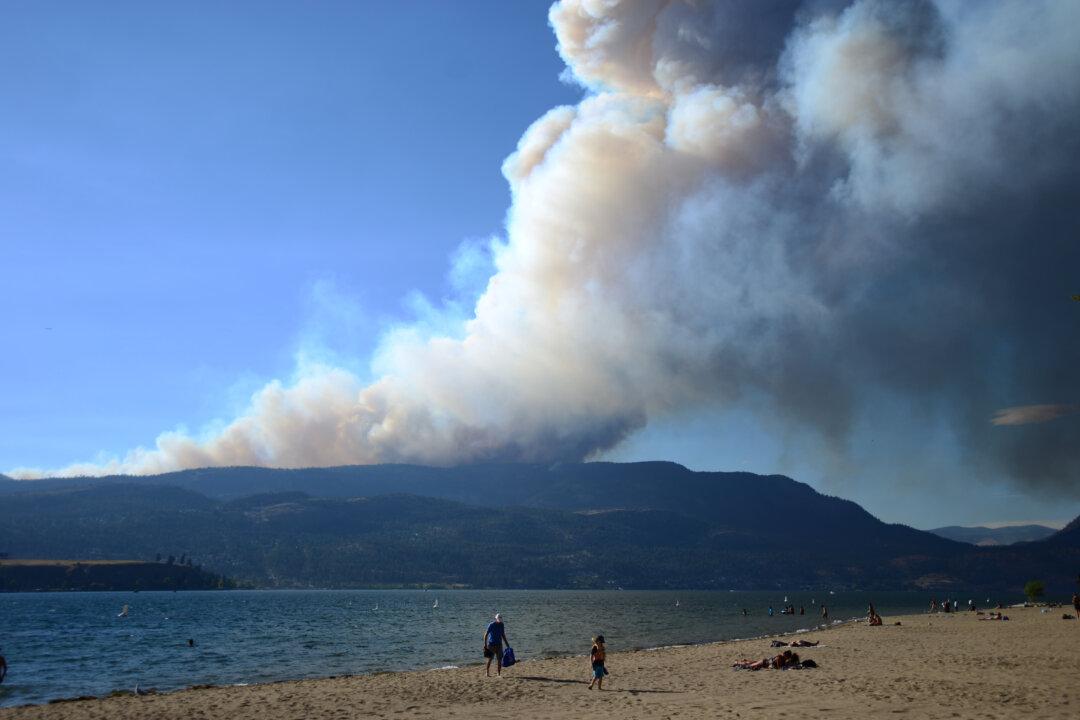Tens of thousands of British Columbia residents have been forced to flee as fires continue to rage across the province, and destroying homes in Kelowna, West Kelowna, and the Shuswap area.
An estimated 30,000 people have been displaced and another 36,000 have been told to be ready to leave at a moment’s notice. However, there were no new evacuation orders issued overnight on Aug. 19.





